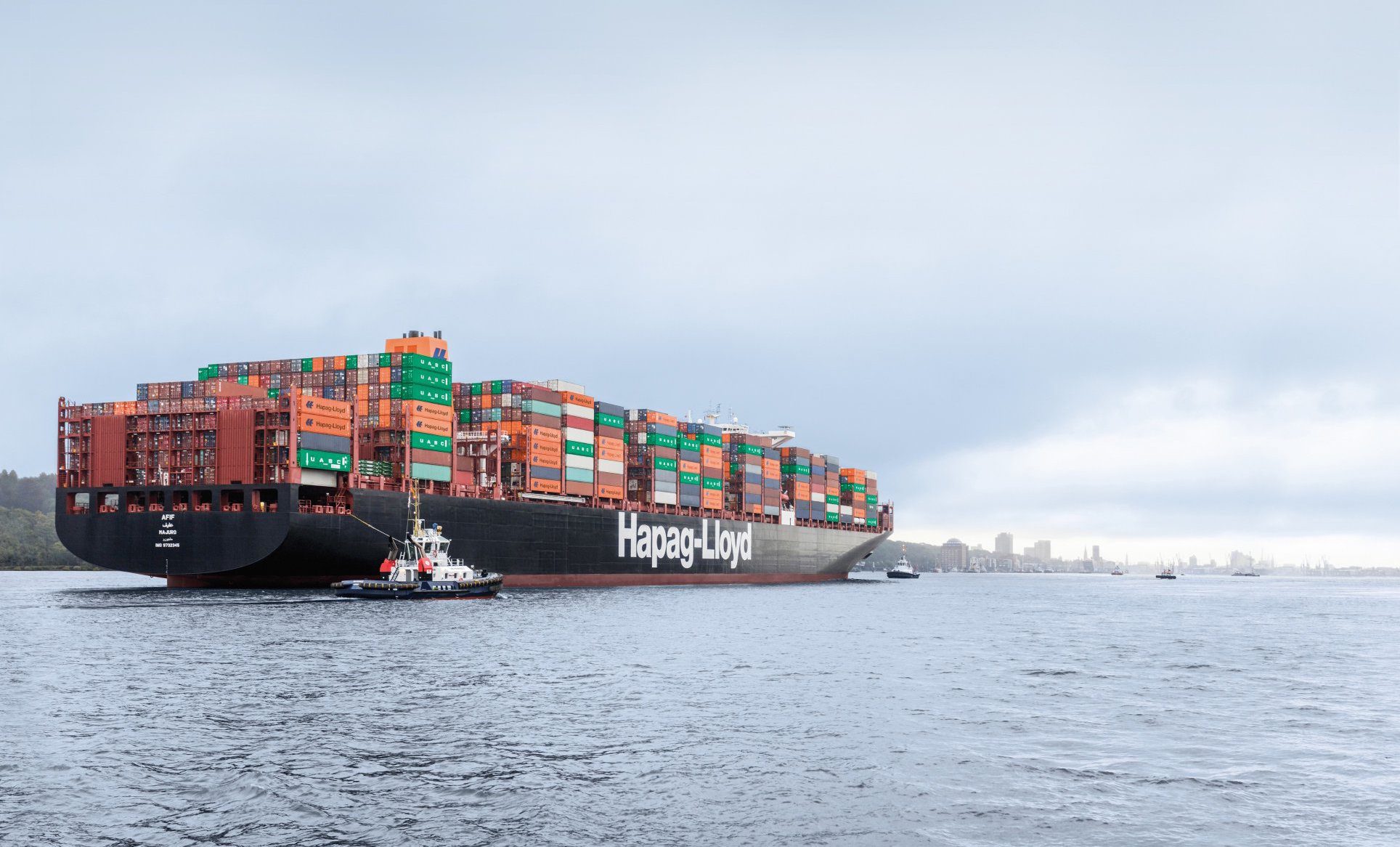Do Super-Sized Ships Create Super-Sized Problems?
This article was originally published in 2019. It has been reposted to provide context to the Ever Given situation in the Suez Canal. Also read Part 2: Piloting a Megaship:...

Photo: Hapag-Lloyd
![]() By Vera Eckert HAMBURG, March 22 (Reuters) – German container group Hapag-Lloyd is on course to achieve better earnings and further reduce debts this year as it cuts costs and benefits from merger savings in an improving shipping industry, it said.
By Vera Eckert HAMBURG, March 22 (Reuters) – German container group Hapag-Lloyd is on course to achieve better earnings and further reduce debts this year as it cuts costs and benefits from merger savings in an improving shipping industry, it said.
“We see fairly stable demand growth and the fundamentals are favourable,” Chief Executive Rolf Habben Jansen said on a call with analysts on Friday. “This will enable us to deliver on our goals for 2019,” he added.
The upbeat tone was in line with that of French container shipping group CMA CGM, which booked record revenue in 2018 and said the trade outlook was positive despite geopolitical tensions.
A.P. Moller-Maersk, the world’s largest container shipping company and a bellwether for global trade, sounded a more cautionary note in February, however, warning that growth in the number of containers being moved around the world would deteriorate further this year.
Hapag-Lloyd said 2019 earnings before interest, tax, depreciation and amortisation (EBITDA) would likely rise to 1.6 to 2.0 billion euros from 1.138 billion in 2018, although it noted pressure from rising shipping fuel costs.
The company’s shares rose as much as 4 percent in early trade before paring gains to stand 1.9 percent higher at 1332 GMT.
It proposed paying shareholders a 2018 dividend of 15 cents, down from 57 cents in 2017 — a level Habben Jansen said was exceptional to reward shareholder faith during the shipping downturn.
“Now we are gradually coming back to normality,” he said of the dividend policy.
A prolonged slump earlier this decade forced some shipping companies out of business but also led to mergers such as Hapag Lloyd’s 2017 link-up with Arab peer UASC, which made it the fifth largest shipping operator.
Habben Jansen said Hapag-Lloyd expects to benefit from rising global transport volumes this year after increasing its own capacity by 21 percent in 2018 to 11.9 million twenty foot equivalent units (TEU). That partly reflected the addition of UASC’s capacity, but also rising demand, he said.
The almost 8 percent rise in 2018 EBITDA was attributed to cost cutting and efficiency gains, and net debt fell to 5.4 billion euros from 5.7 billion over the course of the year.
Income from freight rates is expected to rise slightly this year, reversing some of 2018’s 1.5 percent drop to an average of $1,044 per TEU. Average rates in the fourth quarter of 2018 were already up to $1,079.
($1 = 0.8853 euros) (Reporting by Vera Eckert, editing by Tassilo Hummel and Kirsten Donovan)
(c) Copyright Thomson Reuters 2019.
This article contains reporting from Reuters, published under license.

Sign up for gCaptain’s newsletter and never miss an update

Subscribe to gCaptain Daily and stay informed with the latest global maritime and offshore news
Essential news coupled with the finest maritime content sourced from across the globe.
Sign Up